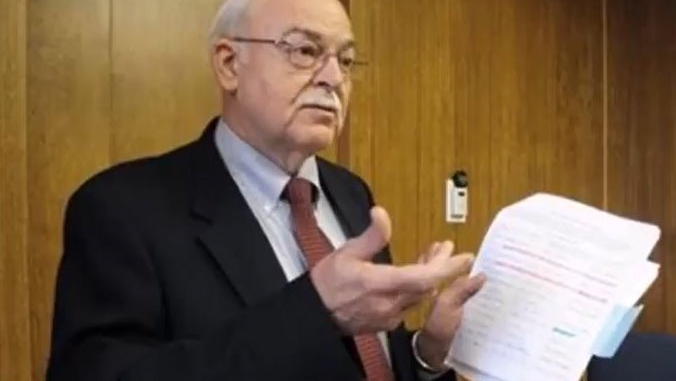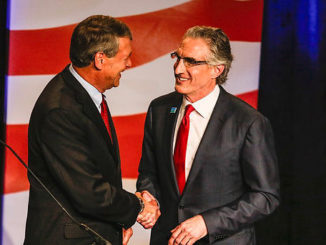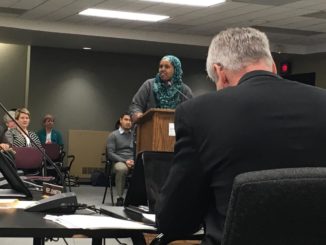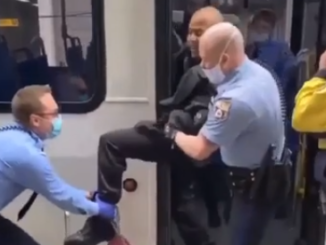
One of the many Executive Orders signed by Governor Doug Burgum, in response to COVID-19, has left North Dakotans with a mail-only primary election. And there’s a lot of people unhappy about it.
To be clear, at the end of the day, Governor Burgum wasn’t solely responsible for having a mail-only election. Right or wrong, his order simply paved the way for the possibility by stating that “all county commission boards in North Dakota’s 53 counties are strongly encouraged to take the following actions”.
In other words, county commissions across the state are the ones who ultimately decided how the 2020 primary election would be carried out in their counties. The Executive Order suggested “voting by mail ballot” and also providing “mail ballot drop box locations” for those who prefer dropping off their ballots instead of mailing them in.
In addition to people receiving their own ballot applications from the Secretary of State’s office, there are a multitude of reports that applications are being received for:
- individuals who have moved
- minor children
- non-citizens
- and even dead people
According to Secretary of State Al Jaeger, in an article from Forum Communications, each name that a ballot application was sent to — over 600,000 of them — came from the Central Voter File (CVF). This file was created in 2006 with information that originated from the county level. Its been regularly updated since that time and includes the database from the Department of Transportation (DOT) for driver’s licenses and non-driver’s identification cards.
(Note: There were 115,226 ballots cast in the June 2018 primary election.)
The obvious concern in all of this is voter fraud. What if someone fills out an additional application and obtains an extra ballot? And, as noted in the Forum article, there’s even a loophole — that Jaeger himself admits exists — in which some non-citizens could vote using their existing ID’s.
Let’s consider some of these concerns.
Is it possible for people to fill out a ballot application for those who have moved — or are dead — and end up with extra ballots to cast in the election? The short answer is, Yes. Jaeger, however, doesn’t seem to think the possibility is problematic, because the information on the application must match what’s on the CVF database in order to receive the ballots.
But is our Secretary of State downplaying this?
What Jaeger didn’t address, in the Forum article, is the fact that an ID isn’t necessarily required. As you can see on the Secretary of State’s website, there are “Special Circumstances” granted for some folks voting via absentee or mail. One of these is called an “Attester”, which is explained this way:
“An applicant living with a disability that prevents the individual from traveling away from the individual’s home to obtain an acceptable form of identification may use an attester. The attester must provide his or her name, North Dakota driver’s license, nondriver’s, or tribal identification number, and sign the absentee/mail ballot application form to attest to the applicant’s North Dakota residency and voting eligibility.”
An attester must also be a qualified elector and can sign a maximum of four applications.
But here’s the problem— How do the people processing these applications know whether the applicants truly have a disability or not? For obvious reasons, medical records certainly aren’t part of the CVF database. And so, this is one instance in which voter fraud becomes a possibility.
To illustrate this, let’s consider the following example.
Example: In addition to receiving his own ballot application, John Doe receives one for his daughter who moved out of state five years ago. He not only fills out his own application, but fills out one for his daughter as well— forging her name of course. Rather than providing ID (which doesn’t exist), he marks “Applicant Without ID”, fills out the section at the bottom as her “Attester”, and mails it in.
In this example, what’s stopping the county from honoring the request and sending John Doe two ballots? From all the information I’ve gathered, nothing.
Then there’s the issue of non-citizen voting. In 2017, the legislature passed — and Governor Burgum signed — House Bill 1369. This bill requires that “operator’s licenses” and “nondriver color photo identification” cards be designed in a manner to distinguish them from similar licenses or ID’s issued to a citizen of the United States and resident of this state.
Sounds good, right? Well, there’s a loophole. According to Jaeger:
“Because driver licenses are valid for six years before being renewed, the DOT records are two years short of when their records will note the difference as to the type.” (Emphasis Added)
This means non-citizens — who don’t yet have the new licenses or ID’s that are distinguished from those of citizens — could actually fill out ballot applications and obtain ballots.
Al Jaeger’s response to this fact:
“It certainly could happen and go undetected. Hopefully, non-citizens would know that they cannot vote.”
Jaeger rightfully acknowledges that there are consequences for those caught doing the things we’re discussing here. But what’s the likelihood they’d actually be caught? Who’s going to sift through hundreds of thousands of ballot applications and do the legwork on each one just to discover the things we’re talking about? Are County Canvassing Boards prepared to do such a thing?
Overall, the number of cases prosecuted for voter fraud in North Dakota is very small. The Heritage Foundation lists two cases of duplicate voting for our state on its website— both from the 2016 election. Neither of those cases resemble anything we’re talking about here.
And lest you wonder what happens to the votes of those who are prosecuted for voter fraud, the Secretary of State’s office has an answer for that as well:
“As is the case with many other states, the vote is still cast. Since the vote is secret, it is still counted and canvassed.” (Emphasis Added)
The idea of voter fraud alone causes many North Dakotans to oppose a mail-only election. And that’s certainly understandable. Votes matter. This is especially true in local elections where margins can be as little as one vote. Heck, even deciding the winner with the flip of a coin has been a thing— not joking.
Aside from the increased potential for voter fraud, there’s other reasons I think that a mail-only election is a mistake. I won’t get too detailed, but here’s my list:
- Governor Burgum’s Executive Order regarding the matter is arguably unconstitutional. Article II of the State Constitution is clear that, “The legislative assembly shall provide by law for secrecy in voting, for absentee voting, for administration of elections…”.
- Slow return times on ballot applications could disenfranchise some voters. I spoke with someone today who told me that they mailed their application about six weeks ago. They still don’t have their ballot— though the tracking system finally shows that it’s on its way. The concern is that many voters won’t get ballots back in time to meet the election’s deadline.
- I believe physical voting could have been accomplished while maintaining social distancing guidelines. Let’s be honest. If we can shop at Walmart, the local grocery store, and a variety of other places, I see no reason why some of us couldn’t have voted at traditional polling places.
While voter fraud is a concern, disenfranchising eligible voters is extremely problematic. Time will tell how all of this pans out. But hopefully we don’t have a mess in the making.
PLEASE LIKE & SHARE!
Sources:
- https://www.governor.nd.gov/sites/www/files/documents/executive-orders/Executive%20Order%202020-13%20Elections.pdf
- https://www.kfyrtv.com/content/news/June-9-primary-election-through-the-mai-569888861.html
- https://www.grandforksherald.com/opinion/6481627-Port-ND-Sec.-of-State-says-no-way-to-immediately-detect-if-some-unqualified-voters-try-to-cast-mail-in-ballot-Hopefully-non-citizens-would-know-that-they-cannot-vote
- https://vip.sos.nd.gov/VoteByMail.aspx
- https://www.legis.nd.gov/cencode/t16-1c02.pdf#nameddest=16p1-02-01
- https://vip.sos.nd.gov/PortalListDetails.aspx?ptlhPKID=62&ptlPKID=4
- https://vip.sos.nd.gov/idrequirements.aspx
- https://www.heritage.org/voterfraud/search?state=ND
- http://www.congressweb.com/assets/VoterRegPDF/REG_North%20Dakota.pdf
- https://apnews.com/85e5faebc2dfa652c1b31bf05527fe90
- https://vip.sos.nd.gov/AbsenteeTracker.aspx





